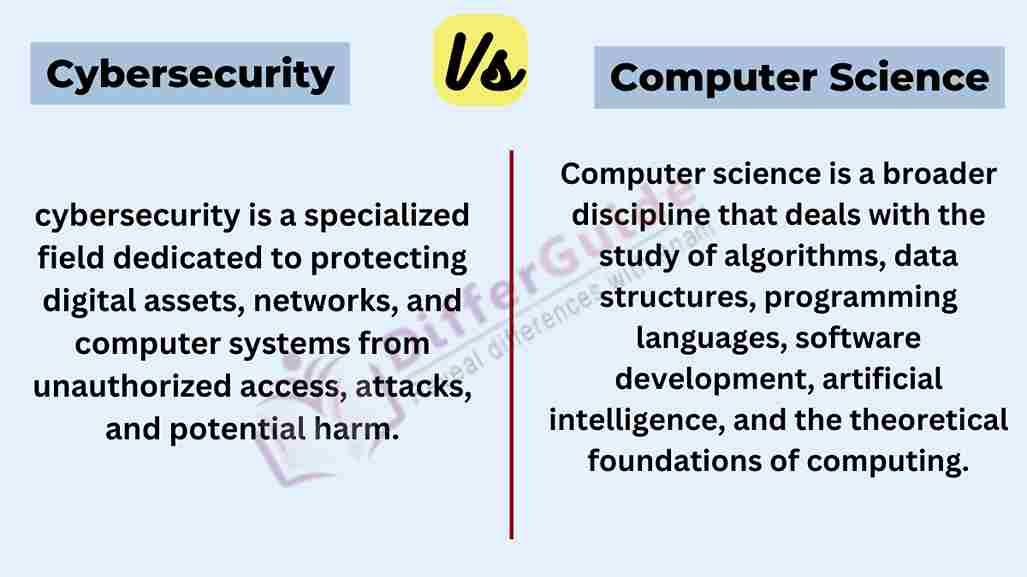The primary difference between cybersecurity and computer science is that cybersecurity is a specialized field dedicated to protecting digital assets, networks, and computer systems from unauthorized access, attacks, and potential harm.
Computer science is a broader discipline that deals with the study of algorithms, data structures, programming languages, software development, artificial intelligence, and the theoretical foundations of computing.

In this article, we will shed light on the differences between cybersecurity and computer science and we will also discuss both separately.
What is Cybersecurity?
Cybersecurity encompasses a wide range of practices, including preventive measures, detection techniques, and incident response. Cybersecurity professionals employ various strategies, such as encryption, firewalls, intrusion detection systems, and ethical hacking (penetration testing) to safeguard sensitive information from cyber threats like malware, ransomware, phishing, and hacking attempts.
The primary goal of cybersecurity is to ensure the confidentiality, integrity, and availability of data and systems.
What is Computer Science?
Computer science encompasses designing, analyzing, and implementing computer systems and applications, and exploring innovative ways to solve complex problems using computational techniques.
Computer scientists lay the foundation for developing new technologies, programming paradigms, and cutting-edge software solutions that power various industries and domains.
Cybersecurity vs. Computer Science
The main differences between cybersecurity and computer science are given below:
| Aspect | Cybersecurity | Computer Science |
| Focus | Protecting digital assets and systems. | Exploring theoretical foundations and innovation. |
| Objective | Preventing and mitigating cyber threats. | Developing new technologies and software solutions. |
| Core Practices | Encryption, firewalls, ethical hacking. | Algorithm design, software development. |
| Areas of Expertise | Network security, incident response. | Artificial intelligence, data structures. |
| Main Concerns | Confidentiality, integrity, availability. | Efficiency, scalability, computational complexity. |
| Career Roles | Security Analyst, Penetration Tester. | Software Engineer, Data Scientist. |
| Interdisciplinary | Overlaps with computer science in some areas. | It may overlap with cybersecurity in certain aspects. |
| Primary Importance | Safeguarding data and systems. | Advancing technology and computer applications. |
